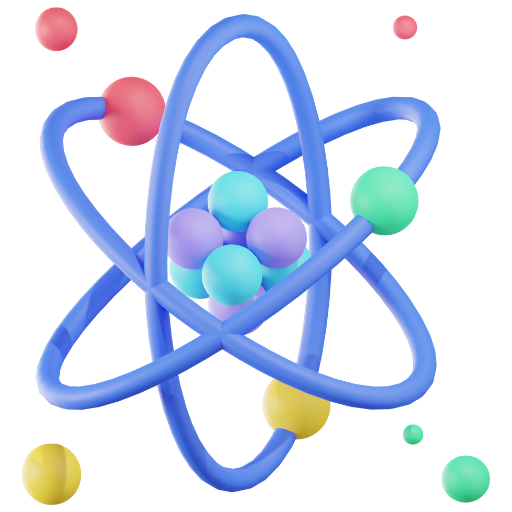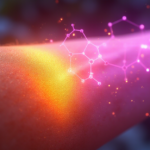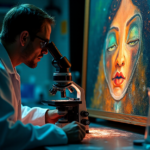Particularly in diagnostics, artificial intelligence is transforming the medical field. Analyzing enormous volumes of medical data and symptoms, AI systems such as ChatGPT can possibly detect diseases with more accuracy than human doctors. Having attentively watched AI developments, I can observe how this technology is revolutionizing healthcare. The ability of artificial intelligence in disease diagnosis will be discussed, combined with its performance relative to human doctors and if AI may eventually replace all medical professionals completely.
Table of Contents
- AI and Doctors: A Powerful Partnership in Diagnosis
- Challenges and Ethical Concerns in Using AI for Medical Diagnostics
- The Future of AI in Medicine: Will Doctors Become Obsolete?
- Extras
AI and Doctors: A Powerful Partnership in Diagnosis

Have you ever considered how artificial intelligence (AI) might be altering disease diagnosis? Indeed, artificial intelligence is causing waves in the medical industry and its diagnostic powers are fast developing. It may surprise you to see some people believe AI will totally replace doctors someday. The truth is far more fascinating, though; artificial intelligence and doctors are collaborating to offer improved healthcare as strong partners. The argument between AI vs doctors is really about cooperation rather than competitiveness.
How AI is Enhancing Medical Diagnosis
By use of large data analysis, artificial intelligence is transforming medical diagnostics. Imagine a doctor attempting to go over a patient’s whole medical history; it would take a great deal of time. In seconds, artificial intelligence can analyze this data and find trends and insights hidden even to the most trained human eye could overlook. For mammograms, for instance, AI-powered image processing systems may remarkably accurately identify early cancerous changes. Actually, these instruments have been utilized to detect breast cancer in women who human radiologists had earlier produced a false negative result. This shows how artificial intelligence might be practically used to enhance diagnoses and maybe save lives.
The Future of AI in Healthcare: A Collaborative Approach
AI improves doctors’ skills so they may concentrate on more difficult tasks. Already showing considerable potential in individualized medicine, AI in medical diagnostics is Imagine a situation whereby early interventions and preventative care are made possible by AI helping clinicians forecast which people are most likely to get particular diseases. This is only the start of what artificial intelligence in medicine can accomplish to change our approach.
Though it’s a great tool, artificial intelligence cannot replace human doctors. Doctors have a degree of sensitivity and intuition that artificial intelligence just cannot match. Crucially for the healing process, doctors can hear their patients, grasp their particular situation, and offer sympathetic treatment. The direction of healthcare will be collective effort! Working together, doctors and artificial intelligence can offer patients the best available treatment.
Still, it’s wise to take certain possible issues under consideration. Data privacy, artificial intelligence algorithm bias, and the moral ramifications of applying AI in healthcare cause some people concern. As artificial intelligence develops in the medical arena, these legitimate worries must be addressed. Ethical rules must be developed going ahead to guarantee that artificial intelligence is applied ethically, openly, and with an eye toward patient well-being. The ultimate aim is to use artificial intelligence to improve healthcare, not to replace the vital function of doctors in patient treatment.
Challenges and Ethical Concerns in Using AI for Medical Diagnostics

Ever wonder how AI-powered medical diagnosis can change medical diagnosis? Although this is an interesting and maybe revolutionary topic, we have to weigh ethical issues and difficulties before we can really welcome its possibilities.
AI in healthcare is about improving the capacity of doctors and arming them to deliver more individualized and efficient treatment, not about AI replacing doctors. Imagine a situation whereby an artificial intelligence system can rapidly examine medical photographs of a patient, therefore enabling faster and more accurate diagnosis by clinicians. Although this technology is clearly a useful tool, we have to admit possible drawbacks.
Addressing Concerns About AI in Medical Diagnostics
The possible for bias in AI-driven healthcare raises one of the most important issues. Since artificial intelligence systems are taught on enormous volumes of data, should this data represent current prejudices, the AI can produce erroneous or unfair diagnosis. Imagine an artificial intelligence system taught mostly from data from Caucasian patients; it may not perform as well for patients from different ethnic backgrounds. This emphasizes how urgently different datasets are needed for training artificial intelligence systems and consistent audits to guarantee correctness and fairness for all people.
Data privacy and security constitute still another important issue. AI in healthcare sometimes calls for access to private patient information, which calls for strong protections of this data. Building confidence and making sure patients feel free to provide their data depends on secure data storage, encryption, and solid privacy regulations.
How Can AI Enhance Medical Diagnostics?
ChatGPT in healthcare is a perfect illustration of the several ways artificial intelligence may be applied to improve medical diagnoses. Large language model ChatGPT can examine medical records and offer doctors analysis tools. This can enable physicians to personalize treatment programs, spot trends, and make more accurate diagnosis.
Novel medical imaging technologies developed with artificial intelligence are also able to more precisely and early on identify disorders. Mammograms, for instance, are being analyzed by AI-powered algorithms to assist radiologists in early stage breast cancer identification when therapy is more successful.
Though these developments are encouraging, it’s important to keep in mind that artificial intelligence cannot replace doctors. False dichotomy AI vs doctors Doctors offer priceless human qualities including empathy, communication, and the capacity to view difficult medical problems holistically.
We have to treat AI-powered medical diagnosis carefully and with an eye toward ethical progress. We have to be aware of how artificial intelligence could reinforce already ingrained prejudices and make sure we are teaching AI systems on varied data sets. Data privacy and security must thus also be given top priority so that patients feel free to provide their data. Imagine a time when AI-assisted medical diagnosis helps clinicians to deliver more individualized and efficient treatment without substituting the vital role of human physicians. Though it calls for careful preparation, honest communication, and a dedication to ethical development, this future is feasible. Let’s make sure that AI in medical diagnostics is applied to empower doctors, not replace them, so enhancing patient care.
The Future of AI in Medicine: Will Doctors Become Obsolete?

Ever stop to consider how artificial intelligence (AI) is altering our perspective on healthcare? From diagnosis of diseases to creation of novel medicines, artificial intelligence is a potent instrument changing medicine in amazing ways. Everyone often wonders, though, whether artificial intelligence will ultimately replace doctors.
Although some would picture a time where robots run doctor’s clinics, the reality is far more complex. AI is about partnering with doctors to raise their capacity and better patient care, not about replacing them. AI is a strong instrument that is improving healthcare. AI is transforming medical diagnostics, for instance. It can examine enormous volumes of medical records, spotting trends even missed by even the most seasoned physicians. Consider a patient with complicated symptoms not fitting a clear diagnosis. With their permission, ChatGPT in healthcare can examine their medical history, test data, and even social media posts to enable clinicians have a more whole view of their circumstances. This data enables doctors to design individualized treatment programs catered to the patient’s particular need and make more accurate diagnosis.
How AI Empowers Doctors
Doctors already find great use for artificial intelligence, and its influence in healthcare will only get more important. By helping doctors forecast which individuals are most likely to get specific diseases, artificial intelligence enables them to act early and offer preventative treatment. Additionally very accurate analysis of medical images using artificial intelligence in medical diagnostics helps to identify diseases earlier on. See “Deep Learning for Breast Cancer Detection,” for instance. With remarkable precision, this technology can examine mammograms and identify early cancerous changes that a human physician might overlook. Early identification helps to greatly enhance patient outcomes. Other spheres of medicine, including drug discovery, individualized treatment, and robotic surgery, are also seeing waves from artificial intelligence.
It’s crucial to allay some people’s worries over artificial intelligence substituting for doctors. Though AI is getting more complex, it is still a tool and, like any tool, it need human direction and control. The sensitivity, compassion, and sophisticated knowledge that a doctor offers to the patient-Doctor interaction cannot be replicated by artificial intelligence. Working together, doctors and artificial intelligence (AI) will produce a more efficient, customized, and effective healthcare system, hence defining the future of healthcare AI. AI will free clinicians to concentrate on what they do best: developing patient relationships, offering emotional support, and negotiating difficult medical conditions. Doctors will thus have more time to answer the particular difficulties of every patient, show sympathy and comfort, and listen to their worries. AI is improving doctors’ skills in this future, therefore enabling them to treat their patients even more effectively than before. It is not replacing them.
Extras
As we explore whether AI could eventually replace doctors, it’s essential to examine the broader implications of AI in healthcare. For further reading, you can check out our related post on “The Future of AI in Healthcare“, where we dive into how AI technologies are already revolutionizing medical practices and what the future might hold for human involvement in healthcare.
For more in-depth research on AI’s diagnostic capabilities, take a look at “AI’s accuracy in diagnosing diseases” on Google Scholar, where you can find scientific studies analyzing how effectively AI can diagnose a wide range of medical conditions compared to human doctors.












1 thought on “ChatGPT vs Doctors: Could AI Bring About the End of Doctors?”